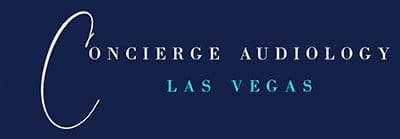Services
Hearing Testing
“I have been well pleased with the personnel and the services. Each time I have made an appointment, it has been completely on time, and my problem has been totally solved. In fact, I have given out her business cards to a variety of people and recommended they make an appointment. I find it so wonderful to hear correctly and not have to say “what”, or “will you please repeat what you said.” Dr. Lee is very professional and competent.”
—Chris P.
Is it Time for a Hearing Test?
Hearing loss is a sudden or gradual decrease in how well you can hear. It is one of the most common conditions affecting older and elderly adults. Having trouble hearing can make it hard to understand and follow a doctor’s advice, to respond to warnings, and to hear doorbells and alarms. It can also make it hard to enjoy talking with friends and family. All of this can be frustrating, embarrassing, and even dangerous.
Do others complain the TV is too loud?
Do you have trouble hearing in a noisy room?
Do you ask others to repeat themselves?
Do you avoid going out because you’ll struggle to hear?
Types of Hearing Loss
Conductive
A conductive hearing loss occurs when sound is not transported efficiently through the ear canal, eardrum, or through the tiny bones of the middle ear. This results in a reduction of the loudness of a sound.
Sensorineural
Often referred to (in error) as “nerve deafness” a sensorineural hearing loss is caused by damage to the hair cells in the cochlea. These cells cannot be repaired or replaced.
Mixed
Some people have both a conductive and a sensorineural hearing loss. A combination of the two different types is referred to as a mixed hearing loss. Resolution of the conductive portion can result in improved hearing.
Why Choose an Audiologist?
Is there a need for a soundbooth?
Multiple studies (Margolis and Madsen (2015) and Maclennan-Smith (2013)) have shown that there is no significant difference between using a soundbooth and a quiet space. For the purpose of hearing aid recommendations and programming, most patients exhibit a hearing loss that is significantly worse than noise levels in a quiet room. As a precaution, we utilize special testing earphones that provide higher levels of noise attenuation to ensure accurate testing. Today’s technology and portable equipment allows us to bring everything we need directly to you so we can provide the exact same service that we could give you in a traditional office setting.
What is the relationship between hearing loss and dementia?
Auditory deprivation is a real condition that occurs when the brain is deprived of sound and progressively loses the ability to process sound. There is a “use it or lose it” effect and the result is brain shrinkage and atrophy. Numerous studies have revealed an association between untreated hearing loss and dementia. They have found that people with hearing loss tend to develop cognitive issues more than people without hearing loss. Other studies report brain shrinkage and decreased neural activity in response to complex sentences as a function of age in individuals with untreated hearing loss. Even a mild hearing loss results in as much as a 30% greater cognitive decline when compared with people without hearing loss. For people with moderate and severe hearing losses, the decline was 42% and 52% higher. Today’s hearing aid technology focuses on stimulating the brain as much as possible and minimizing the detrimental effects of hearing loss on the brain. Because hearing loss is a progressive condition, addressing it sooner than later is always best to minimize possible long term irreversible effects.
People often assume that all hearing aid dispensers are audiologists but this is not the case. Audiologists help diagnose and treat disorders of the ear and balance systems and also specialize in hearing aids. An Au.D. (Doctorate in audiology) is the highest level degree one can attain in the field of audiology and it takes years of education and training to attain.
Having enough time to spend with patients allows us to follow best practices within the scope of our practice as audiologists. This means we take the time to do a thorough case history, comprehensive audiological examination, make appropriate hearing aid recommendations, verification with real ear measurements (REM), maintaining a good follow up schedule and making referrals to primary care physicians or ENT specialists when appropriate.When making a decision to find the right professional to handle your hearing needs, it is always a good idea to choose a trusted and reliable professional who will look out for your best interests.
Get In touCh
Schedule Your Appointment Now
Phone
Fax
Office Hours
By Appointment Only
